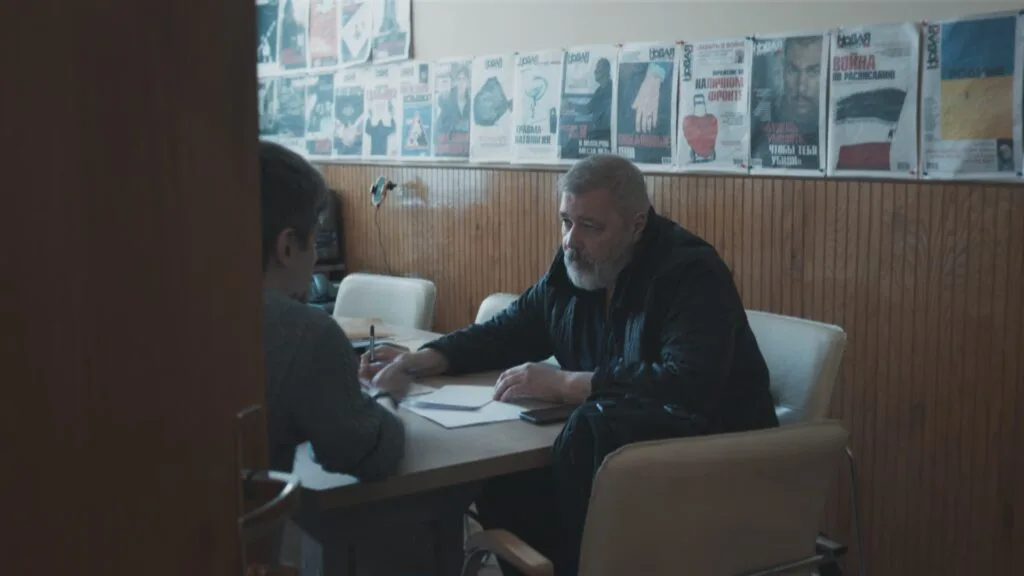From Russian Newspaper Editor to ‘Foreign Agent’

October 5, 2023
When filmmaker Patrick Forbes decided to make a documentary about Russian newspaper editor Dmitry Muratov, Muratov had just won a Nobel Prize. Over the course of the next year, Russia would invade Ukraine, and Russian President Vladimir Putin would intensify his government’s crackdown on the press – a crackdown in which Muratov and his newspaper, Novaya Gazeta, would be caught up.
In this episode of The FRONTLINE Dispatch, Forbes joins host Raney Aronson-Rath, editor-in-chief and executive producer of FRONTLINE, to discuss Putin vs. the Press, the new documentary that follows Muratov as he as he faces personal attacks and fights to keep his reporters safe.
Forbes recounts the difficulty of filming a documentary in Russia, where he says Muratov’s story “symbolizes the increasing restriction on freedom of press in Russia” and “the slow strangling of any independent voices.”
Putin vs. the Press is streaming on FRONTLINE’s website, FRONTLINE’s YouTube channel, and the PBS App.
Want to be notified every time a new podcast episode drops? Sign up for The FRONTLINE Dispatch newsletter.
Latest Documentaries
Explore
Policies
Teacher Center
Funding for FRONTLINE is provided through the support of PBS viewers and by the Corporation for Public Broadcasting, with major support from Ford Foundation. Additional funding is provided the Abrams Foundation, Park Foundation, John D. and Catherine T. MacArthur Foundation, Heising-Simons Foundation, and the FRONTLINE Trust, with major support from Jon and Jo Ann Hagler on behalf of the Jon L. Hagler Foundation, and additional support from Koo and Patricia Yuen. FRONTLINE is a registered trademark of WGBH Educational Foundation. Web Site Copyright ©1995-2025 WGBH Educational Foundation. PBS is a 501(c)(3) not-for-profit organization.



















